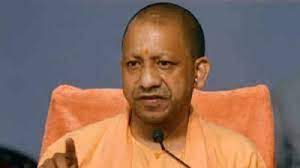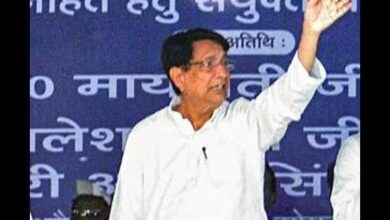“Violates secularism”: Uttar Pradesh Madrassa Act overturned by the High Court
Lucknow: The Uttar Pradesh Board of Madrassa Education Act, 2004, was declared “unconstitutional” by the Allahabad High Court on Friday. The court reasoned that the act’s “scheme and purpose” of “only promoting and providing education of Islam” violated secularism and that it permitted degrees to be awarded in violation of the UGC Act.

15.75 lakh children registered in 13,329 recognised madrassas in Uttar Pradesh are directly impacted by Justices Vivek Chaudhary and Subhash Vidyarthi’s ruling affirming petitioner Anshuman Singh Rathore’s argument that the statute was “ultra vires,” which is Latin meaning beyond the powers.
The division court ordered the state government, headed by the Bharatiya Janata Party, to accept students from all madrassas in normal schools connected to the primary, high school, and intermediate education boards. The government has been attempting to include science and mathematics in madrassa teaching.
For the aforementioned aim, the state government will see to it that an adequate number of new seats are produced in accordance with the requirements, and if necessary, an adequate number of new schools are built. According to the decision, the state government must also make sure that kids between the ages of 6 and 14 are admitted to properly accredited schools.
Screenshot 020815-2024-03-23
Iftikhar Ahmed Javed, the board head, said that it was difficult to accept the unexpected declaration of unconstitutionality of an Act that had governed madrassa education for 20 years.
“Clearly, there was an error made somewhere. He remarked, “Our solicitors were unable to adequately present their case before the court.
Maulana Khalid Rashid Farangi Mahali, a member of the All India Muslim Personal Law Board, proposed challenging the ruling before the Supreme Court.
Petitioner Rathore challenged not just the madrassa board’s constitutionality but also the minority welfare department’s takeover of all such establishments. Up until 1995, when the department of education took over, UP’s madrassas were governed by the education department. Nine years later, the Act that made it easier to create a madrassa board was passed.
According to the petitioner, the Act does not provide the high-quality compulsory education required by Article 21-A until the age of 14 or Class VIII. “Therefore, it infringes upon the madrassa students’ basic rights.”
The government attorney argued that the state had the right to approve this kind of instruction. Giving religious guidance and teaching is neither prohibited nor unlawful. A distinct board made up of adherents of that specific faith is necessary for such religious instruction, he said.
A petition for intervention was filed against it by a few madrassas and the associations that represent its workers. A number of lawyers spoke before the bench over the matter, including amicus curiae Gaurav Mehrotra and additional advocate general Anil Pratap Singh.
In rendering their decision, the justices referenced many rulings from the Supreme Court. The Supreme Court has consistently upheld the rule that higher education is an area exclusive to the Union of India. Consequently, the state government lacks the authority to enact laws in the relevant area.







